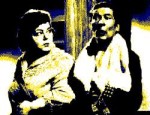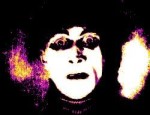Film Synopsis
It is in 1945, whilst being detained in a German prisoner-of-war camp, that
Gérard Lacassagne discovers his vocation to become a priest.
This arises through a chance encounter with Maurice Morand, a defrocked Catholic
priest. Gérard finds Morand a fascinating individual, although
he can understand why others might consider him heretical - his theological
musings are as provocative as they are original. After being repatriated
to his native France, Morand causes further controversy by publishing a book
that is widely condemned as a betrayal of Christ's message. Meanwhile,
Gérard's decision to enter the priesthood is ill-received by his family,
who had expected better things of him.
Gérard's fiancée Catherine is so shocked that she seeks to
thwart his plans by revealing his friendship with Morand to the Church authorities.
Far from putting Gérard off, this opposition merely persuades him that
he has made the right choice. Morand repays Gérard's confidence
in him by sending him to a friend of his, under whose benevolent guidance
he will be able to complete his training as a priest. Gérard
then devotes himself to the seemingly insuperable challenge of getting Morand
reinstated in the church - in vain. On the day that he is ordained as
a priest, Gérard visits Morand in the hope that he can reawaken his
beliefs. The two men get into an argument, and as he strikes his friend
Morand unwittingly reopens an old war wound. As Gérard dies
in his arms, Morand regains his faith by offering the Last Rites.
© James Travers
The above content is owned by frenchfilms.org and must not be copied.


